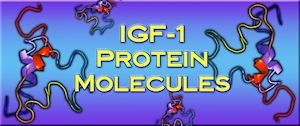 If you’re a married woman trying to have children, you might be one of those who are finding it hard to conceive.
If you’re a married woman trying to have children, you might be one of those who are finding it hard to conceive.
Could an imbalance in your hormones be the culprit? We are all very fortunate to live in an age when science – and a few simple measurements and tests – can give us an accurate answers.
For many couples struggling to engender a child, hormone therapy can increase the chances of conception relatively quickly and non-invasively.
Although in rare cases it is the husband suffering from a hormonal imbalance, in the vast majority of cases it’s the woman who can benefit from the therapy.
A Woman’s Fertility More Likely to Benefit from Hormone Therapy Than Men’s During a Hormone Imbalance
The purpose of the therapy – after the tests at our clinic determine if a hormone imbalance is likely to cause the trouble and therefore truly needed – is to help Nature along in the process of causing the woman’s eggs to mature appropriately and then to encourage ovulation.
Depending on the woman’s age and level of hormone imbalance, the results vary – not only for each woman (we are all different) but also for each menstrual cycle.
Although average success rates hover below 25%, that shouldn’t be discouraging: Some women get no results, which could be for many different reasons, including the existence of structural problems beyond the abilities of hormones to change – and these “no results” cases drag the average down.
Therefore, the remainder of the women receiving hormone replacement therapy (HRT) often gets good results, though not always on the first try. Therapies that run over several monthly cycles have the best chance of success.
 See a qualified doctor and experienced clinician for infertility issues is essential.
See a qualified doctor and experienced clinician for infertility issues is essential.
Difficulty in achieving pregnancy can result in serious stress and anxiety for both wife and husband, and you definitely don’t want to add to that by getting involved with fly-by-night peddlers of “magic” nostrums and supplements of questionable effectiveness.
Such dead ends only drag out the fear and anxiety and delay the happy day when you conceive your child.
Hormone therapy can’t cure all cases of infertility, but it can cure some.
Estrogen and Progesterone are Mainly Used to Treat Infertility
The two most common hormones HRT use for infertility problems (difficulty in conception) are progesterone and estrogen.
Usually, as you experience your monthly menstrual cycle, your estrogen levels will vary just before and just after ovulation.
These two compounds work together to signal your body to increase the thickness of the lining of your womb (or uterus). If the lining isn’t thick enough, then the fertilized egg won’t be able to embed itself in the lining, which it must do for the egg to develop into a baby.
For some women, a hormone imbalance of insufficient female hormones causes these cycles to become very irregular so that ovulation (the dropping of the egg into the uterus) doesn’t coincide with proper uterine wall lining thickness. Careful measurement of hormone levels, and proper supplementation (not too little or too much) can restore these cycles to proper balance and allow these women to conceive and ultimately deliver a healthy baby.
 The hormone usually prescribed in such cases is estrogen. Estrogen has three components inside your body; each considered a hormone in its own right: estriol, estrone, and estradiol.
The hormone usually prescribed in such cases is estrogen. Estrogen has three components inside your body; each considered a hormone in its own right: estriol, estrone, and estradiol.
Sometimes, your doctor may decide that your test results show a need for estradiol alone for the best results.
There is no “one size fits all” hormone fertility therapy, just as there is no fixed, unchangeable answer for fixing a car that won’t start. There is much variation between cases.
If your test results indicate a need for more progesterone, your doctor still has choices: Should he or she prescribe natural progesterone – or use synthetic substitutes? Again, the decision rests with you and your doctor. The expense, degree of hormone loss, and possible side effects are all factors that must be considered.
Hormonal Imbalances Can Also Involve Androgens, Leading to Immature Egg Follicles
Some women suffer from an inability of their eggs to mature properly. For others, there is no ovulation whatsoever. Such problems are often responsive to HRT. The tests done at our clinic will uncover any possible imbalance between androgen (a hormone found in low levels in women and higher levels in men) and estrogen.
For women with such an imbalance, the egg-bearing follicles never grow to their proper size, often preventing ovulation altogether.
Other women wanting to conceive suffer from a condition in which there are too many egg follicles on their ovaries. This overabundance prevents the proper maturing of a single follicle – which must occur for an egg to drop down and be fertilized. This condition, too, can, in some cases, be resolved with hormone replacement therapy.
 Follicle-Stimulating Hormone and Luteinizing Hormone
Follicle-Stimulating Hormone and Luteinizing Hormone
Fewer women having trouble conceiving have low levels of two additional hormones: FSH (follicle-stimulating hormone) and LH (luteinizing hormone).
LH directly causes ovulation, releasing the egg from the follicle and descending down the Fallopian tube. FSH makes the egg follicles – where the eggs themselves grow – develop correctly. If our tests show that their hormones are too low, therapy can help.
Another hormone called prolactin is necessary for breast growth and readiness for nursing once your baby is born. But if your body releases too much prolactin too early, it can prevent your follicles from growing. Therapies are available that temporarily decrease the level of prolactin in your bloodstream.
Contact Us For A Fast And Professional Response

- Hormone Hacks for Optimizing Wellness And Reducing Hunger Cravings [Last Updated On: August 20th, 2024] [Originally Added On: July 26th, 2020]
- Sermorelin Acetate Injections: A Quality Alternative to Human Growth Hormone Injections? [Last Updated On: August 31st, 2024] [Originally Added On: December 24th, 2020]
- Dioxins: A Serious Endocrine-Disruptor that Harms Hormone Balance [Last Updated On: January 6th, 2025] [Originally Added On: June 30th, 2021]
- Healthy Sex Hormone Levels Protect the Rotator Cuff [Last Updated On: November 10th, 2024] [Originally Added On: September 8th, 2022]


















